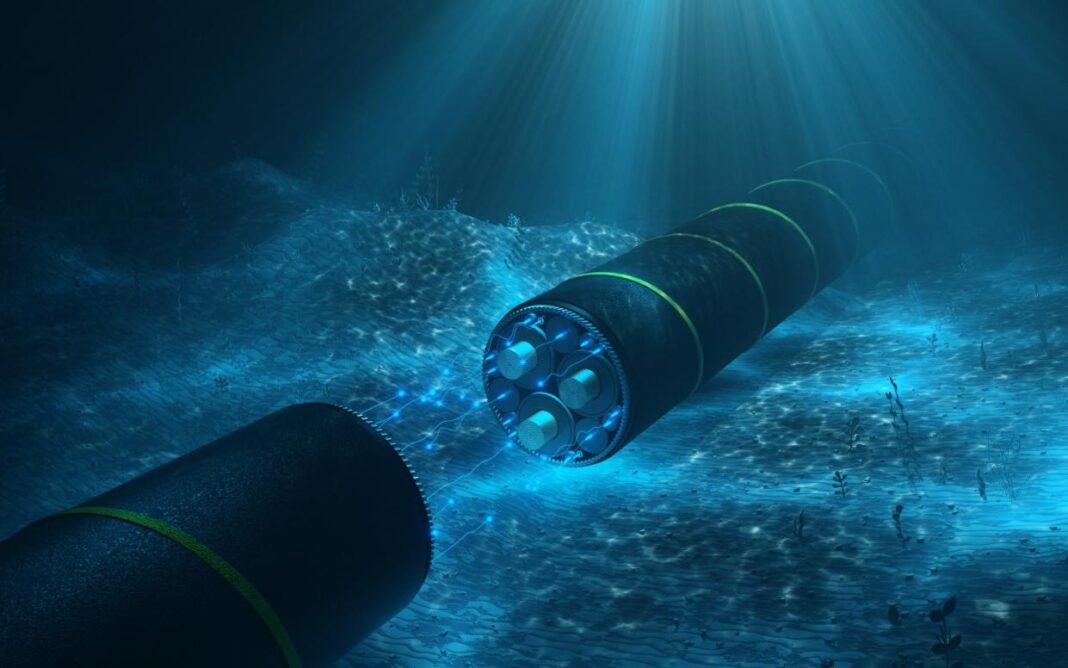A Chinese bulk carrier, ‘Yi Peng 3’ is under scrutiny for its possible involvement in damaging two critical undersea cables in the Baltic Sea.
It began when two undersea fiber-optic internet cables in the Baltic Sea, connecting Lithuania and Sweden as well as Finland and Germany were slashed on November 17-18, 2024. Investigators quickly focused on a Chinese bulk carrier, the Yi Peng 3, which was in the vicinity when the cables were damaged, and underwater footage has raised suspicions of sabotage.
The breaches prompted German Defense Minister Boris Pistorius to label the incident as potential sabotage. An analysis of MarineTraffic data revealed that coordinates of the Chinese bulk carrier Yi Peng 3 coincided with the location and timing of the cable damage. It’s a complex situation with significant implications for regional security and internet connectivity.
China’s foreign ministry denied any responsibility in the matter, however, Sweden’s Prime Minister Ulf Kristersson called on the Chinese government to officially assist with the investigation.
After weeks of investigation on the suspected sabotage by a Chinese bulk carrier on the cutting of two undersea fiber-optic internet cables connecting Finland and Sweden to Central Europe, Denmark facilitated a meeting between the concerned parties and China to allow representatives from Finland, Denmark, and Germany to board the Yi Peng 3. On December 19, Swedish authorities boarded the Chinese bulk carrier.
However, Reuters reported that the Chinese authorities conducted the investigation, while the European parties participated only as observers. Meanwhile, new underwater footage of the damage has further raised suspicions of sabotage.
These suspicions of sabotage are being further fueled by recent underwater footage that revealed drag marks that coincide with the ship’s maneuvers, as reported by TV2 (via Scandasia). Records show that the ship passed over the BCS East-West Interlink connecting Sweden to Lithuania while making slow, erratic movements uncharacteristic of an underway commercial cargo ship last November 17. It happened again the following day when the Yi Peng 3 was over the C-Lion1 cable between Finland and Germany.
Although the underwater footage is recorded at the behest of private media organizations and not by the investigating body, it seemingly adds more proof to the allegation that the ship dragged its anchor and caused damage to the undersea cables. Another question that remains unanswered is whether or not this was an obscene accident or a deliberate act by the Chinese ship.
The Swedish-led preliminary investigation into the suspected sabotage is still ongoing, with Swedish prosecutors leading the case within Sweden’s exclusive economic zone.
The investigation reportedly focuses on whether the Chinese ship’s crew was directed to drag the anchor to intentionally damage the cables. Kpler, an analytics company that focuses on shipping, told the Wall Street Journal that due to “the mild weather conditions and manageable wave heights, the likelihood of accidental anchor dragging appears minimal.” Sources familiar with the investigation found that damage to the Chinese ship Yi Peng 3’s hull and its anchor were consistent with being dragged across the bottom of the ocean and with severed cables.
Officials from multiple countries believe that the vessel was responsible for the cable breaches. The disagreement on whether the damage was accidental or intentional, has fueled international concern, especially given the strategic importance of undersea cables for global communications and economic stability.
Undersea cables are absolutely vital for global communications and economic stability. Over 97% of global internet traffic is transmitted via undersea cables. They carry everything from streaming videos and financial transactions to diplomatic communications and essential intelligence. These cables are critical for the global economy, enabling international trade, banking, and commerce. Any disruption can have significant economic consequences. Undersea cables are part of a nation’s critical infrastructure. They are essential for military communications and intelligence operations.
Due to their importance, undersea cables are attractive targets for sabotage and espionage. Protecting them is crucial for maintaining global stability. Given their strategic importance, it’s no surprise that incidents like the suspected sabotage in the Baltic Sea are taken so seriously.
Targeting undersea cables can offer several strategic advantages for a nation like China, as they are crucial for global communications and financial transactions. Disrupting them can cause significant economic damage and create instability in global markets. By tapping into undersea cables, the Chinese can intercept sensitive information, including military communications and economic data.
Sabotaging or disrupting undersea cables can be used as a tool by the PRC to exert pressure on other nations, potentially gaining geopolitical advantages. Undersea cables are part of a nation’s critical infrastructure. China could be deliberately targeting them as part of hybrid warfare, aiming to weaken an adversary’s communication capabilities. These actions can have far-reaching consequences, affecting not just the targeted nation but also global communications and economic stability.
However, investigating incidents like this can take a long time, and even if the culprit is found, as appears to be the case here, proving intent is incredibly difficult.
Officials in the United States and Europe have expressed concern over subsea data cables built and operated by China’s Huawei Marine Networks (HMN) Tech, citing cybersecurity and espionage risks. The United States has always pushed particularly hard to persuade its European allies to avoid installing cables owned by Chinese companies. While the Europeans have not always shared this risk assessment, the involvement of Chinese-flagged vessels in the two Baltic Sea cable-cutting incidents, has led Europe to begin to consider China as a threat to European security, including its subsea cables.

